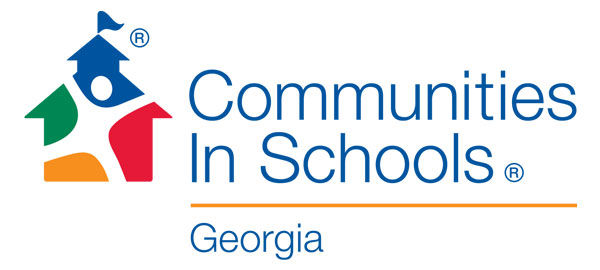The Issue
Across the country, approximately 1 in 6 children under 18 live in poverty. These are disproportionately children of color who already struggle with issues of access and equity. Without community support, they are more at risk for missing school, dropping out and failing to earn a high school diploma. By helping our most vulnerable students stay in school and succeed in life, we are building stronger, healthier and more economically stable communities where every person is capable of reaching his or her greatest potential.
Our Solution
Communities In Schools started in Georgia over 30 years ago and is now part of the nation’s leading dropout prevention organization. ICF International completed a comprehensive five-year evaluation, comparing the results to over 1,600 studies screened by the Department of Education’s What Works Clearinghouse. ICF concluded that the Communities In Schools model is cost effective, reduces dropout rates and increases graduation rates. Our school-based staff partner with teachers to identify challenges students face in class or at home and coordinate with community partners to bring outside resources inside schools. From immediate needs like food or clothing to more complex ones like counseling or emotional support, we do whatever it takes to help students succeed.
Our History
Communities In Schools, an independent nonprofit corporation focused on school success and dropout prevention, has its roots in Georgia. In the early 70’s, Bill Milliken, Neil Shorthouse and David Lewis established Cities In Schools in Atlanta as a private/public partnership to help urban kids graduate from high school and plan successful futures. Years later the name was changed to Communities In Schools (CIS). The Communities In Schools national office provides detailed information on the network. “It’s relationships, not programs, that change children,” Bill once said. “A great program simply creates the environment for healthy relationships to form between adults and children. Young people thrive when adults care about them on a one-to-one level, and when they also have a sense of belonging to a caring community.”
It’s relationships, not programs, that change children.— Bill Milliken
Forty years into our mission of surrounding students with communities of support, Bill’s principle continues to guide our work and serves as a beacon for the next chapter in our history.
Our Mission
Our mission is to surround students with a community of support, empowering them to stay in school and achieve in life.
Our Values
Our values as a national organization are:
- Accountability
- Integrity
- Collaboration
- Equity
- Excellence
Our Belief
Communities In Schools believes that transformative relationships are key to unlocking a student’s potential. We will succeed by including in our strategies, ingraining in our culture, and reflecting in our behaviors, principles and practices of diversity, equity and inclusion. As a result, we break down immediate and systemic barriers to create and sustain equitable outcomes.
The Five Basics©
Communities In Schools surrounds students with a community of support, empowering them to stay in school and achieve in life. The nation-wide network of nonprofit organizations focuses on improving student and school success by providing needed support and services to students and schools. Our goal is to support youth, improve graduation rates, academic achievement and job and post-secondary school readiness.
Communities In Schools believes that programs don’t change kids, relationships do. Our philosophy is embedded in the CIS five basics for kids©, which focus on building a supportive environment for children and youth to help them thrive and be successful. The CIS five basics listed below were adopted by America’s Promise when it started in 1997.
- A one-on-one relationship with a caring adult. The First Basic is a one-on-one relationship with a caring adult. …
- A safe place to learn and grow. …
- A healthy start and a healthy future. …
- A marketable skill to use upon graduation. …
- A chance to give back to peers and community.
Improving Educational Outcomes as a Network
Communities In Schools of Georgia is part of the national network and builds statewide capacity for our network of local affiliates to sustain, grow and improve educational outcomes for under-served youth. CIS of GA offers support in the following areas:
Affiliate Program Initiation and Development
Community Development
Program Development
Training and Conferences
Technical Support
Resource Development
Public Relations and Marketing
Program Evaluation
